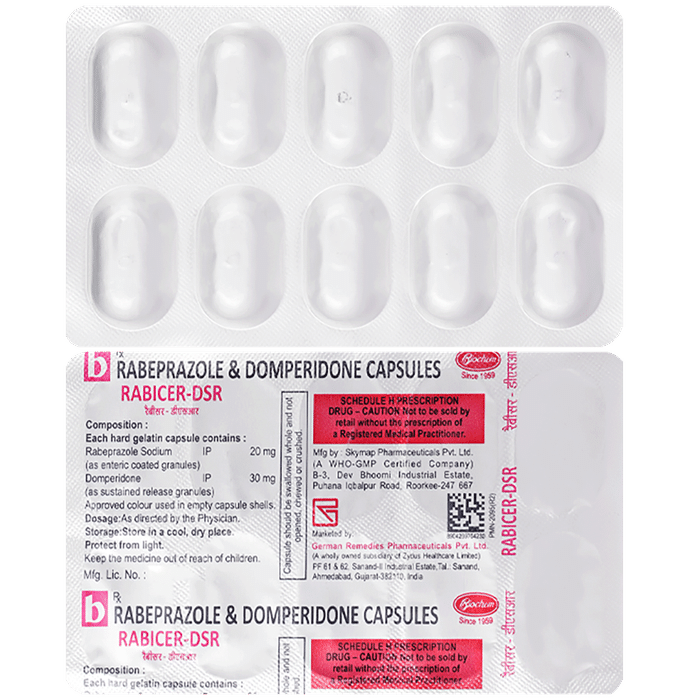cyclofen ACECLOFENAC
Introduction to Cyclofen
Cyclofen is a medication primarily used to manage pain and inflammation. It is often prescribed for conditions such as osteoarthritis, rheumatoid arthritis, and ankylosing spondylitis. Cyclofen works by reducing the substances in the body that cause pain and swelling.
Composition of Cyclofen
Cyclofen contains the active ingredient Aceclofenac, which is a type of non-steroidal anti-inflammatory drug (NSAID). This ingredient helps in alleviating pain and reducing inflammation.
Uses of Cyclofen
- Relief from pain and inflammation associated with osteoarthritis.
- Management of symptoms in rheumatoid arthritis.
- Treatment of ankylosing spondylitis symptoms.
Side Effects of Cyclofen
Common Side Effects:
- Nausea
- Abdominal pain
- Diarrhea
- Dyspepsia (indigestion)
- Dizziness
- Drowsiness
- Blurry vision
Serious Side Effects:
- Peptic ulcers
- Gastrointestinal bleeding
- Cardiovascular events like stroke
- Renal impairment (kidney problems)
Precautions of Cyclofen
Cyclofen should not be used during pregnancy or breastfeeding. It is also contraindicated for individuals with stomach ulcers, bleeding problems, or allergies to similar medications. Caution is advised for older adults and those with liver or kidney issues. Avoid combining Cyclofen with other similar pain relievers to reduce the risk of stomach problems.
How to Take Cyclofen
- The usual dosage for adults is 100 milligrams in the morning and 100 milligrams in the evening.
- Take Cyclofen orally, usually as a tablet.
- Follow your healthcare provider's instructions regarding dosage and duration.
Conclusion of Cyclofen
Cyclofen is an effective medication for managing pain and inflammation associated with various arthritic conditions. While it offers significant relief, it is important to be aware of its potential side effects and take necessary precautions. Always consult with a healthcare professional before starting or adjusting your dosage of Cyclofen.


Can Cyclofen be taken safely while breastfeeding?
Cyclofen is not recommended while breastfeeding. There's limited information on whether it passes into breast milk, but it could potentially affect the baby. If you're breastfeeding and need pain relief, talk with your doctor about safer alternatives. They can help you choose a medication that allows you to nurse your baby safely. Always discuss any concerns about medication use during breastfeeding with your healthcare provider.

Can Cyclofen be taken safely while pregnant?
Cyclofen is not recommended during pregnancy, especially in the third trimester. It may affect the baby's heart and blood flow. There's limited information on its safety during pregnancy, so it's best to avoid it unless absolutely necessary. If you're pregnant or planning to become pregnant, talk with your doctor about safer alternatives for managing pain and inflammation. Your doctor can help create a treatment plan that protects both you and your baby.

Can I take Cyclofen with other prescription drugs?
Cyclofen can interact with other medications, increasing the risk of side effects. It may interact with blood thinners, increasing the risk of bleeding. Combining Cyclofen with other NSAIDs or corticosteroids can increase the risk of gastrointestinal issues. It may also interact with certain blood pressure medications, affecting their effectiveness. Always inform your doctor about all medications you're taking to avoid potential interactions. They can help manage your treatment safely.

Does Cyclofen affect appetite?
Cyclofen doesn't typically affect your appetite. Most people taking this medication don't notice changes in how hungry they feel or how much they want to eat. If you notice any unexpected changes in your appetite after starting Cyclofen, talk with your doctor about these changes. For mild appetite changes, try maintaining regular meal times and eating a balanced diet while taking your medication. Your doctor can help determine if any appetite changes you experience are related to Cyclofen or if there might be another cause.

Does Cyclofen affect mood?
Cyclofen doesn't typically cause mood changes. Most people take this medication without experiencing anxiety, agitation, or other mental health effects. If you notice changes in your mood or mental well-being after starting Cyclofen, talk with your doctor. These symptoms might be related to something else, like stress or another health condition. Your doctor can help determine what's causing any mental health changes you experience and suggest appropriate support while continuing your treatment.

Does Cyclofen affect sleep?
Cyclofen doesn't typically cause sleep problems. Most people take this medication without experiencing any changes in their sleep patterns. If you notice changes in how well you sleep after starting this medication, talk with your doctor. Sleep problems might be related to something else, like another medication you're taking or a different health condition. Your doctor can help figure out what's causing your sleep issues and suggest ways to improve your rest while continuing your treatment.

Does Cyclofen cause headaches?
Headaches are not a common side effect of Cyclofen. Most people take this medication without experiencing headaches. If you do get mild headaches while taking Cyclofen, staying well-hydrated and resting may help. You can also take over-the-counter pain relievers after checking with your doctor. For severe or persistent headaches that develop after starting this medication, talk with your healthcare provider. Your doctor can help determine if your headaches might be related to Cyclofen or if they have another cause that needs attention.

Does Cyclofen cause stomach upset?
Yes, Cyclofen can cause stomach upset, including nausea, vomiting, or diarrhea. These gastrointestinal side effects are occasional and usually mild. Taking Cyclofen with food can help reduce stomach discomfort. If you experience severe or persistent stomach issues, contact your doctor. They can help determine if these symptoms are related to Cyclofen and suggest ways to manage them. Always inform your healthcare provider about any new or worsening symptoms while taking this medication.

Does Cyclofen cause weight gain?
Cyclofen doesn't typically affect body weight. Most people take this medication without noticing changes in their weight. If you experience unexpected weight changes while taking Cyclofen, talk with your doctor. They can help determine if these changes are related to the medication or if there might be another cause. Maintaining a balanced diet and regular exercise can help manage your weight while taking any medication.

Does Cyclofen interfere with sexual function?
Cyclofen doesn't typically interfere with sexual function. Most people take this medication without experiencing changes in sexual health, such as erectile dysfunction or loss of libido. However, if you notice any changes in your sexual function while taking Cyclofen, it's important to talk with your doctor. They can help determine if these changes are related to the medication and suggest appropriate solutions. Always communicate any concerns about side effects with your healthcare provider to ensure your treatment plan is effective and safe.

Does Cyclofen limit driving?
Cyclofen might cause dizziness or drowsiness in some people, which can affect your ability to drive safely. If you feel dizzy or lightheaded after taking Cyclofen, avoid driving until these symptoms go away. When you first start this medication, pay attention to how your body responds before getting behind the wheel. Talk with your doctor about any concerns you have about driving while taking this medication, especially if you notice any unusual symptoms.

Does Cyclofen make it hard to think or concentrate?
Cyclofen doesn't typically cause thinking problems or concentration difficulties. Most people take this medication without experiencing any changes in their mental focus or memory. If you notice problems with your thinking after starting this medication, talk with your doctor. These symptoms might be related to something else, such as another health condition. Your doctor can help determine what's causing these issues and suggest solutions while keeping your treatment plan on track.

Does Cyclofen make people tired or drowsy?
Cyclofen doesn't typically cause tiredness or drowsiness. Most people take this medication without feeling unusually tired. If you notice you're feeling very sleepy or fatigued while taking Cyclofen, talk with your doctor. Your tiredness might be caused by something else, like another medication you're taking, or an underlying health condition. Your doctor can help determine what's causing your symptoms and recommend appropriate adjustments to your treatment plan.

For how long do I take Cyclofen?
Cyclofen is usually used for short-term relief of pain and inflammation. The duration of use depends on your specific condition and how you respond to the medication. Your doctor will guide you on how long to take Cyclofen based on your health needs. It's important to follow their instructions and not to use it longer than recommended. If you have ongoing pain, discuss long-term management options with your doctor.

How does Cyclofen work?
Cyclofen works by blocking the production of certain chemicals in the body that cause inflammation and pain. These chemicals, called prostaglandins, are involved in the inflammatory process. By reducing their production, Cyclofen helps decrease swelling and pain. Think of it like turning down the volume on a loudspeaker; it reduces the "noise" of inflammation in your body. This makes Cyclofen effective for conditions like arthritis, which involve inflammation and pain.

How do I know if Cyclofen is working?
Cyclofen is used to relieve pain and reduce inflammation, often for conditions like arthritis. You'll know it's working when you notice a decrease in pain and swelling, and an improvement in your ability to move. These changes can usually be felt within a few hours of taking the medication. Regular check-ups with your doctor are important to monitor your progress and adjust your treatment if needed. Always follow your doctor's instructions for the best results.

How do I take Cyclofen?
Take Cyclofen as prescribed by your doctor, usually twice daily. It's best to take it with food to reduce stomach upset. Swallow the tablet whole; do not crush or chew it. If you miss a dose, take it as soon as you remember unless it's almost time for your next dose. In that case, skip the missed dose and continue your regular schedule. Do not take two doses at once. Always follow your doctor's specific instructions regarding diet and fluid intake while on this medication.

How long does it take for Cyclofen to start working?
Cyclofen usually starts working within a few hours after taking it. You may begin to feel relief from pain and inflammation within this time. However, the full therapeutic effect may take a few days to become noticeable, especially for chronic conditions like arthritis. Individual factors, such as your overall health and the severity of your condition, can affect how quickly you experience relief. Always take Cyclofen as prescribed for the best results.

How should I store Cyclofen?
Store Cyclofen at room temperature, away from moisture and light. Keep it in its original packaging or a tightly closed container. Avoid storing it in humid places like bathrooms, as moisture can affect the medication's effectiveness. Always keep Cyclofen out of reach of children and pets to prevent accidental ingestion. Check the expiration date regularly and properly dispose of any unused or expired medication.

Is Cyclofen effective?
Cyclofen is effective for relieving pain and reducing inflammation. It's commonly used to treat conditions like arthritis, which causes joint pain and swelling. Clinical studies show that Cyclofen effectively reduces pain and improves mobility in people with arthritis. It works by blocking substances in the body that cause inflammation. Most people experience significant relief from symptoms when taking Cyclofen as prescribed. Always follow your doctor's instructions to ensure the best results from this medication.

Is Cyclofen safe for the elderly?
Elderly individuals are more vulnerable to the side effects of Cyclofen, such as gastrointestinal bleeding and kidney problems. It's important for older adults to use this medication under close medical supervision. Regular monitoring by a doctor can help manage any potential risks. If you're an older adult taking Cyclofen, report any unusual symptoms to your doctor promptly. They can adjust your treatment plan to ensure it's safe and effective for your needs.

Is it safe to drink alcohol while taking Cyclofen?
It's best to avoid alcohol while taking Cyclofen. Alcohol can increase the risk of stomach bleeding and irritation, which are potential side effects of Cyclofen. Drinking alcohol may also worsen other side effects like dizziness. If you choose to drink, do so in moderation and be aware of any warning signs like stomach pain or dizziness. Talk with your doctor about alcohol use while taking Cyclofen for personalized advice based on your health situation.

Is it safe to drink coffee or tea while taking Cyclofen?
You can drink coffee and tea while taking Cyclofen. There's no known interaction between caffeine and Cyclofen. However, both caffeine and Cyclofen can cause stomach upset in some people. If you notice any discomfort, try reducing your caffeine intake. Make sure to drink plenty of water throughout the day to stay hydrated. If you have concerns about caffeine consumption while taking Cyclofen, talk with your doctor for personalized advice.

Is it safe to exercise while taking Cyclofen?
Yes, you can exercise while taking Cyclofen, but be mindful of how your body feels. This medication can cause dizziness or stomach upset, which might affect your ability to exercise. If you experience any discomfort during physical activity, slow down or stop and rest. Drink plenty of water to stay hydrated. Most people can maintain their regular exercise routine while taking Cyclofen, but check with your doctor if you have concerns about your specific situation.

What are Cyclofen possible harms and risks?
Common side effects: Gastrointestinal symptoms like nausea, abdominal pain, diarrhea, and dyspepsia.
Serious risks: Peptic ulcers, gastrointestinal bleeding, cardiovascular events (e.g., stroke), and renal impairment

What disease or symptom is Cyclofen used for?
Cyclofen is primarily used to treat pain and inflammation associated with conditions like arthritis, which causes joint pain and swelling. It can also be used for other types of pain, such as dental pain or muscle aches. Cyclofen helps reduce inflammation and relieve pain by blocking substances in the body that cause these symptoms. It can be used alone or in combination with other therapies, depending on your specific health needs.

What is Cyclofen?
Cyclofen is a nonsteroidal anti-inflammatory drug (NSAID) used to relieve pain and reduce inflammation. It works by blocking substances in the body that cause inflammation. Cyclofen is commonly used to treat conditions like arthritis, which causes joint pain and swelling. It can also be used for other types of pain, such as dental pain or muscle aches. Always use Cyclofen as directed by your doctor to ensure safe and effective treatment.

What is the usual dose of Cyclofen?
The usual dose of Cyclofen for adults is 100 mg taken twice daily. It's important to follow your doctor's instructions regarding the dosage. Your doctor may adjust the dose based on your specific health needs and how you respond to the medication. For elderly patients or those with certain health conditions, dose adjustments may be necessary. Always consult your doctor for personalized dosing instructions and never change your dose without their guidance.

Who should avoid taking Cyclofen?
Cyclofen should not be used if you have a known allergy to it or similar medications. It's contraindicated in people with severe liver or kidney problems, which affect how the body processes the drug. Avoid Cyclofen if you have a history of gastrointestinal bleeding or ulcers. It's also not recommended during pregnancy, especially in the third trimester, as it may harm the baby. Always consult your doctor about any health conditions before starting Cyclofen.
Available in 2 variations

strip of 10 tablets

Cyclofen 200mg Tablet SR
strip of 10 tablets

















.svg)
